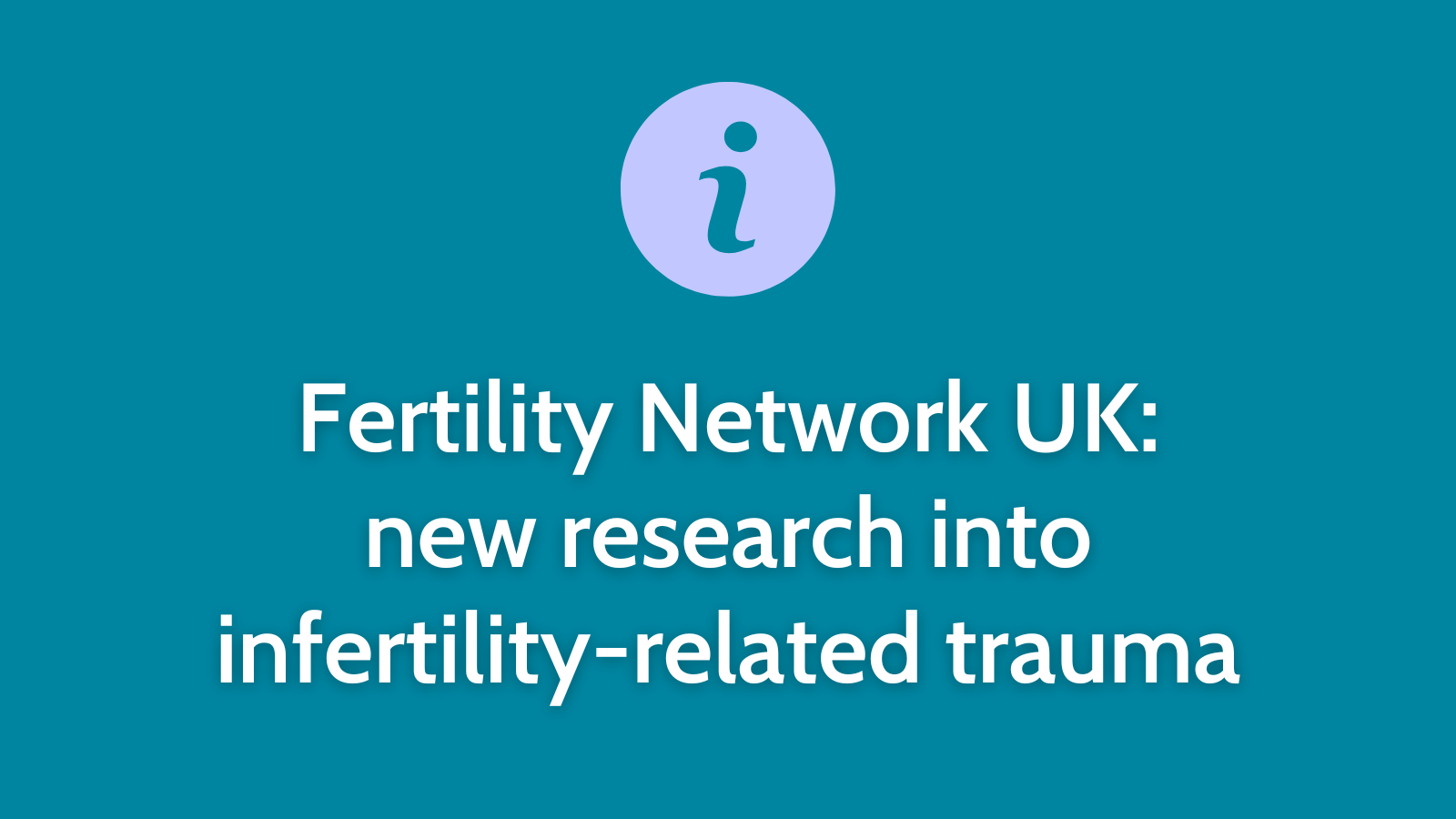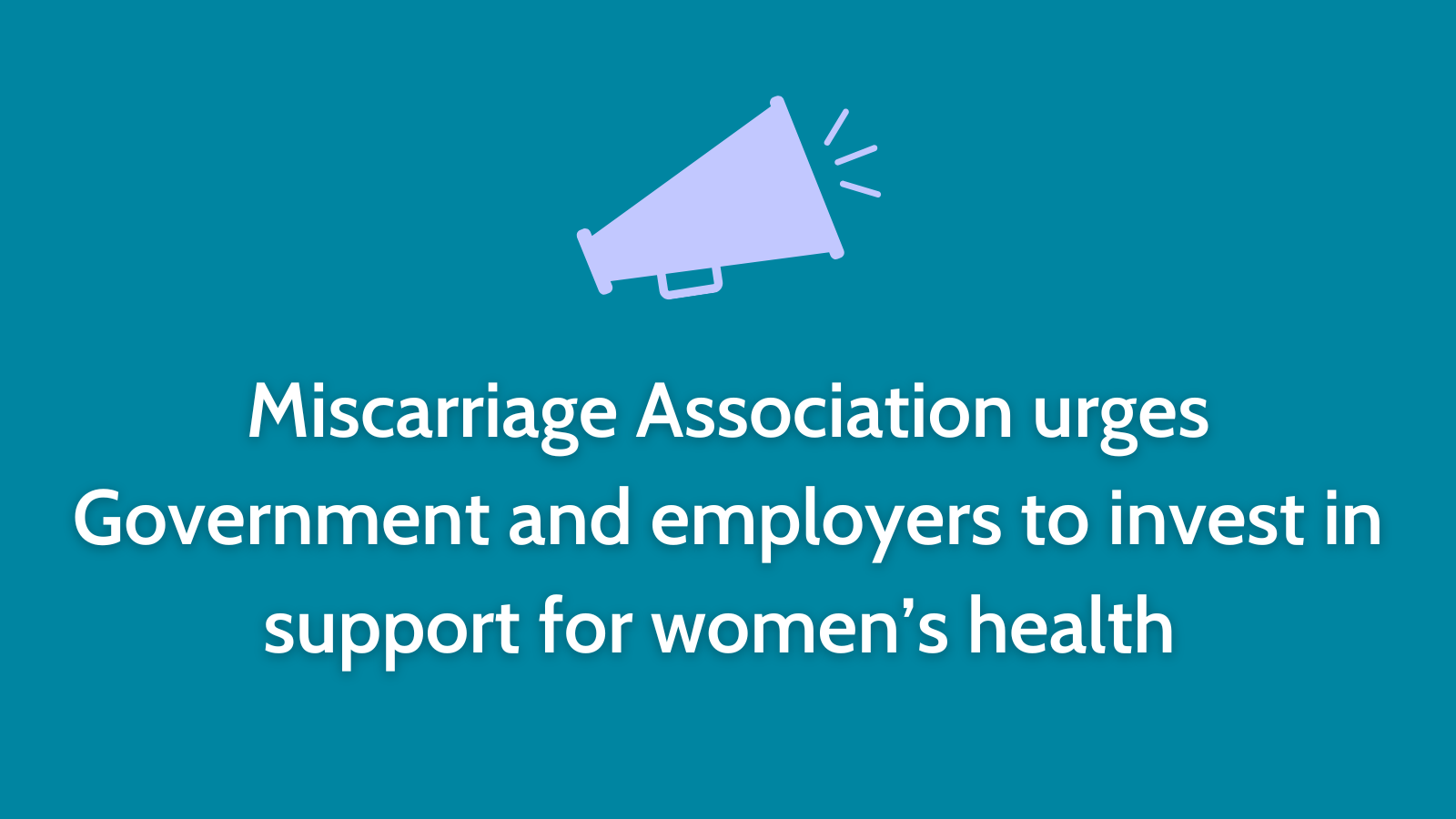New research reveals infertility-related trauma – including miscarriage – is more common than previously recognised
4th November 2024

We were concerned to read the new research published today by Fertility Network UK, that infertility-related trauma, including miscarriage, is more common than previously recognised.
The research – co-produced by Fertility Network and lead researchers at Cardiff University, Cardiff Metropolitan University and Queen’s University Belfast, in association with the British Infertility Counselling Association (BICA) – analysed data from 590 respondents from across the UK and Ireland, who self-reported their traumatic experiences linked to various infertility events. A total of 41% of respondents met criteria for post-traumatic stress disorder (PTSD) and complex PTSD, according to the International Trauma Questionnaire (ITQ, 32% of respondents with complex PTSD and 9% with PTSD).
Lead researcher, Dr Sofia Gameiro, Cardiff Centre for Reproductive Research, Cardiff University said:
“Participants described a wide range of medical events as triggering traumatic experiences which were in many cases compounded by the care context. In many cases, it was the repetitive or cumulative effect of distressing events that seemed to exacerbate the traumatic nature of these, alongside social triggers. While some respondents reported positive, skilful and compassionate care, it was clear that over 60% highlighted aspects of the care they received caused or amplified trauma.”
Examples of care experiences exacerbating trauma included: a lack of empathy or acknowledgment of distressing experiences; poor information provision, such as dismissive or conflicting advice, or no forewarning nor explanations about negative treatment outcomes, when sharing bad news; and insensitive and unsupportive care from staff.
Positive experiences of trauma-skilled care described by patients included: better information to manage expectations of success; timely counselling referrals; explanations of the emotional aspects of treatment; and acknowledgement of reproductive experiences as traumatic, particularly in the context of miscarriage.
Dr Gameiro added:
“The research suggests there are specific reproductive and treatment events that are most associated with traumatic experiences, such as one or more unsuccessful IVF cycles, ectopic pregnancy, miscarriage and baby loss, complicated birth, stillbirth and unsuccessful fertility treatment as a whole.”
Sharon Martin, interim chief executive of Fertility Network UK, said:
“Although many of us working with or supporting fertility patients are acutely aware of how distressing a fertility journey can be, it is shocking and deeply concerning to see the high levels of infertility-related trauma that we suspected, confirmed in this research.”
“We will continue to work with our academic partners and all our partner organisations, to help create collaborative recommendations for improved trauma-skilled care for fertility patients, including the availability and equitable access to more NHS-funded fertility treatment and timely signposting to specialist trauma-focussed interventions.”
Vicki Robinson, Miscarriage Association Chief Executive, said:
“We know from our own research that the care people receive from their GP, hospital, or community staff can significantly impact how they cope with the distressing experience of pregnancy loss. Compassionate, informed support can make all the difference.
“Our free e-learning resource is designed to help Health Care Professionals provide the best possible care to those facing the heartbreak of pregnancy loss—whether it be miscarriage, ectopic, or molar pregnancy.
The full report can be found, here.

